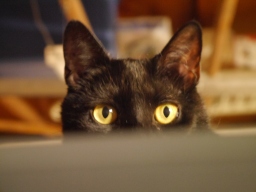 Lent begins tomorrow with Ash Wednesday. You enter church on Ash Wednesday and there is a more solemn feeling with the flowers removed and the readings and Gospels beginning our path to Holy Week, the Crucifixion, and, ultimately the Resurrection which begins the Easter Season.
Lent begins tomorrow with Ash Wednesday. You enter church on Ash Wednesday and there is a more solemn feeling with the flowers removed and the readings and Gospels beginning our path to Holy Week, the Crucifixion, and, ultimately the Resurrection which begins the Easter Season.
For many, however, the day before Ash Wednesday (as in TODAY!), is a day to have a last fling with treats and celebration before we put aside our party mood to follow the way of the Cross once more.
To many, today is called Shrove Tuesday. Shrove comes from the word ‘shrive’ which means a time to take some time for self-examination and consideration of what wrongs or bad habits in our lives can be resolved or stopped in the next six weeks of Lent. It should be a time of pursuing spiritual growth, asking for God’s help, and undoing wrongs that may have hurt others. Given some of the celebration of Mardi Gras, I’m thinking many people will be adding to the ‘need to shrive’ list by the end of the evening!
Today can be also called Pancake Tuesday. Many people use Lent to offer sacrifices in their daily lives as in things they like to do or things they enjoy eating. Pancake Tuesday represents our last taste of rich foods as pancakes (if they are made well!), are comprised of whole milk, good flour, butter, and eggs not to forget the rivers of syrup and mountains of melting butter on top.
Long before the Christian Era came into play, the ancient Slavs thought of the change of seasons as a struggle between Jarilo, the God of fertility, vegetation, and spring time and the evil spirits found in the cold and darkness of winter. Naturally, the people decided that Jarilo could use some help in overcoming the gloominess of the spirit-ridden winter months and decided that pancakes was the way to go! The round pancakes coming hot out of the pan were symbolic of the sun and it’s warmth. By consuming the pancakes, it was believed it gave off the light, power, and heat of the sun. I guess, the more that were made and eaten, the sooner the dismal winter times were banished.
Naturally, every country has a treat that is enjoyed the Tuesday before Ash Wednesday. The English go with the with the pancakes. The Polish people have special jelly donuts called Paczki. In Germany, housewives fry up doughnuts called fashnachts which it German for ‘Eve of the Fast.
The English made pancakes, the Poles jelly doughnuts called paczki. In Germany, women bustled about frying up doughnuts called fastnachts (German for “Eve of the Fast”). In researching, I discovered that just about every country has a special pancake primarily reserved for this day! Some differ by topping, others include special ingredients in the batter. At our house, we prefer waffles so I guess that in our neck of the woods, we started our own little tradition. No matter how you observe the vigil of Lent, if it bring family together, it is a good thing.
O kind Creator, bow Thine ear
To Mark the cry, to know the tear
Before Thy throne of mercy spent
In this Thy holy fast of Lent.
Roman Breviary, Hymn audi benigne Conditor for Vespers.

